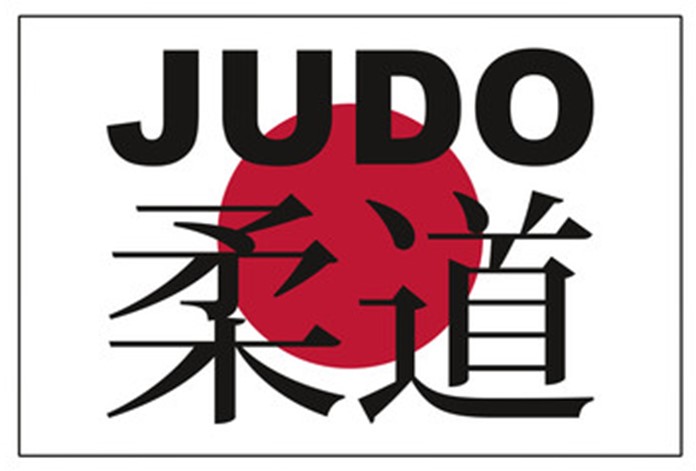
Judo is a tremendous and dynamic Olympic sport that demands both physical prowess and great mental discipline. From a standing position, it involves techniques that allow you to lift and throw your opponent. On the ground, it includes techniques that allow you to pin your opponent down to the ground and control them.
Judo is Simple and Basic
Judo originated in Japan as a derivative of the various martial arts developed and used by the samurai and feudal warrior class over hundreds of years. Although many of the techniques of judo originated from arts that were designed to hurt opponents in actual field battle, the techniques of judo were modified so that judo students can practice and apply these techniques safely and without hurting opponents:
• Judo does not involve kicking, punching, or striking techniques of any kind.
• Judo does not involve the application of pressure against the joints to throw an opponent.
• Judo involves no equipment or weapons of any sort.
Instead, judo simply involves two individuals who, by gripping the judo uniform or judogi, use the forces of balance, power, and movement to attempt to subdue each other. Thus, it is simple and basic. In its simplicity, however, lies its complexity, and mastery of even the most basic of judo techniques that often take considerable time, effort, and energy, involving rigorous physical and mental training.
The Principle of Gentleness
The word judo consists of two Japanese characters, ju, which means "gentle", and do, which means "the way". Judo, therefore, literally means the way of gentleness. Although the gentleness may not be immediately apparent to newcomers who see bodies flying through the air and people pinned to the ground, it is this principle of gentleness, or yawara (which is the same character as the ju in judo), on which all judo techniques are based.
Rigorous and Physical Activity
Judo is a rigorous and demanding physical activity. The practice of judo techniques helps people develop basic and fundamental physical fitness in a number of ways, such as the development of strength, flexibility, agility, speed, dynamic and static balance, explosive power, and endurance. The practice of active attack and defence helps develop reaction time, coordination, and overall physical self-confidence.
Much More to Learn
But beyond the development of physical prowess and athletic ability, judo students learn much more. They learn how to control their feelings, emotions, and impulses. They learn about the values of perseverance, respect, loyalty, and discipline. Judo students develop an outstanding work ethic, as well as important social manners and etiquette.
Judo: a System of Physical, Intellectual, and Moral Education
Judo is much more than the mere learning and application of combat techniques, however. In its totality, it is a wonderful system of physical, intellectual, and moral education. Judo has its own culture, systems, heritage, customs, and traditions. Moreover, the principles of gentleness are carried from the practice mats and into most students' lives, in their interactions with their friends, family, work colleagues, and even strangers. Judo gives its students a code of ethics, a way of living, and a way of being. Practised today by more than 20 million individuals, judo is undoubtedly the most popular combat sport in the world. In terms of sheer numbers of participants, judo is the second most popular sport of any sport, soccer being number one. In terms of national organisations worldwide, judo is the largest sport in the world, with the greatest number of member nations in the International Judo Federation, or IJF. It is a part of the physical education systems of many countries and is practised in local clubs, junior high and high schools, colleges, regional and national training centres, and in many other areas in this country and across the world. Millions have discovered the spectacular enriching sport, and way of life, we know as judo.
A Role to Play in the Society
Judo students also learn valuable social skills and build long-lasting and meaningful relationships with others. The camaraderie and bonding that occurs among partners who have shared the rigours of physically difficult and mentally demanding training are deep, often providing the basis for relationships that last a lifetime. Through judo, people are able to develop friendships and integrate socially almost anywhere. Regardless of the towns you visit, in your home country or elsewhere, there is bound to be a judo club, or dojo, where you will be welcomed.
JUDO KIDS
Join Our 2024 Judo Kids Program at Hobart PCYC
Welcome to Judo at Hobart PCYC!
Embark on your Judo journey with us in 2024. Our program is designed for ages 7-11yrs of all skill levels, fostering a supportive and inclusive environment.
Program Start Date for 2024:
Costs and Discounts:
1. Judo Uniform (Gi):
2. Hobart PCYC Membership Fee:
3. Judo Membership Registration:
4. Family Discount:
5. Grading Fees:
Why Choose Judo at Hobart PCYC?
Get Started with Judo:
We're excited to welcome you to our Judo Kids Program in 2024. Join us for a journey of physical fitness and personal development!
For all beginners... comfortable clothing! A judo "jacket", the top half of a Judogi (uniform) will initially be supplied by our Instructor.
Membership forms are attached to this page. For more information about Judo at Hobart PCYC, contact Mr Garth Morley on 0417 503 515 or our friendly staff on (03) 6107 9206, or email enquiries@hobartpcyc.org.au